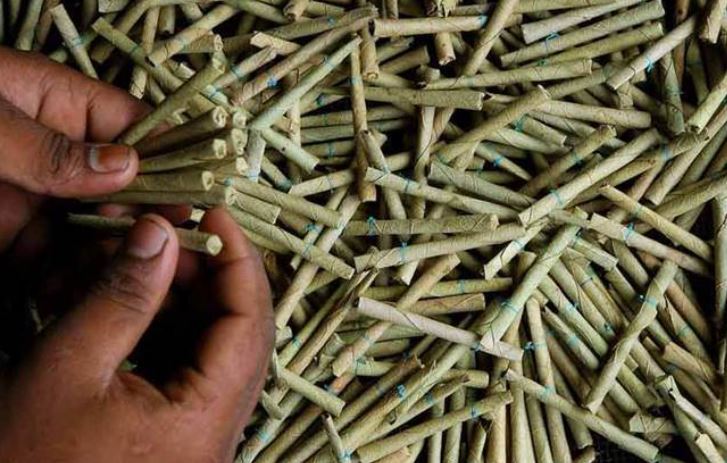

Lack of tax collectability results in dampening of government revenue ambitions
While Sri Lanka has made notable progress in tobacco control, with policies reducing cigarette consumption, the unchecked growth of the beedi industry presents a mounting threat to the economy. The informal nature of the beedi trade makes it difficult to regulate, allowing it to flourish despite stringent measures applied to the formal tobacco industry. According to the Research Intelligence Unit’s 2023 report, the beedi industry has more than doubled in size, growing from 3.01 billion sticks in 2015 to 6.51 billion in 2023. Meanwhile, the duty-paid cigarette market has shrunk significantly, with consumption dropping to 0.9  billion sticks the first half of 2024.
The economic implications of this shift are profound. Cigarettes, being part of the formal economy, are subject to excise duties and taxes, making them a substantial contributor to government revenue. The shrinking legal cigarette market, coupled with a growing beedi industry that operates largely outside the formal tax system, results in significant revenue loss. The government’s ambitious taxation policies, intended to curb smoking while boosting revenue, are being undermined by the affordability and accessibility of beedi. Tax hikes on cigarettes have inadvertently driven consumers—especially low-income groups—toward cheaper alternatives, such as beedis and illicit cigarettes, which are growing in prevalence.
In January 2023, the government attempted to address this by imposing a Rs. 2 tax per beedi stick, aiming to generate an additional Rs. 3 billion in revenue. However, while there is a well thought mechanism in place for collecting this tax, its poor implementation means that the government is still missing out on this crucial income. The informal nature of the industry and widespread non-compliance have allowed it to grow unchecked, limiting the government’s ability to realize its revenue potential.
Moreover, the smuggling of tendu leaves, a critical raw material in beedi production, has compounded the issue. The Sri Lankan Navy’s recent seizure of 1,318 kg of beedi leaves suspected to have been illegally smuggled into the country in the seas around Talaimannar and Mannar on September 21-22, and another 3,524 kg of smuggled tendu leaves in Kalpitiya in August, contribute to a year-to-date total of 65,709 kg of seized tendu leaves, as per recent press releases. highlights the scale of the problem. Smuggling not only contributes to the black-market economy but also leads to further leakage of government revenue, putting additional pressure on the economy.
The economic impact extends beyond lost revenue. The proliferation of beedi, especially menthol-flavored varieties, raises health concerns, particularly among younger consumers. The informal nature of the beedi industry in Sri Lanka affects a significant portion of the workforce, with over 8,000 families involved in beedi production, generating more than 2.5 billion sticks annually. This lack of regulation leads to the exploitation of laborers, predominantly women and children, who work without formal contracts, social security, or minimum wage protections. The informal nature of the industry also means that laborers in the beedi trade are often unregulated, leading to exploitation, poor working conditions, and a lack of social security, all of which contribute to socioeconomic instability.
In light of these challenges, the government must prioritize strengthening tax collection systems and enforcing regulations in the beedi industry. Addressing smuggling and ensuring that beedi manufacturers comply with taxation policies could help recover lost revenue, which is essential for an economy already grappling with fiscal deficits and debt. Without these measures, the beedi industry will continue to undermine the country’s economic stability while posing serious health risks to its population. Authorities must act swiftly to prevent the informal beedi sector from becoming an even greater burden on both the economy and society.
By Kithsiri Gunasoma
(The writer is former Management Consultant with 25 years of corporate experience)
The Department of Motor Traffic (DMT) has made it mandatory to provide the Taxpayer Identification…
The Inland Revenue Department has announced that individuals earning less than Rs. 1.8 million annually…
Parliamentarian Chamara Sampath Dassanayake was brought before the Colombo Magistrate’s Court today (01) in connection…
The price of a cup of milk tea has been increase by Rs. 10, the…
The Ministry of Health announced that Sri Lanka is prepared to dispatch a medical team…
A major accident has occurred near the 25.5 km mark on the Dodangoda-Galanigama Expressway, involving…